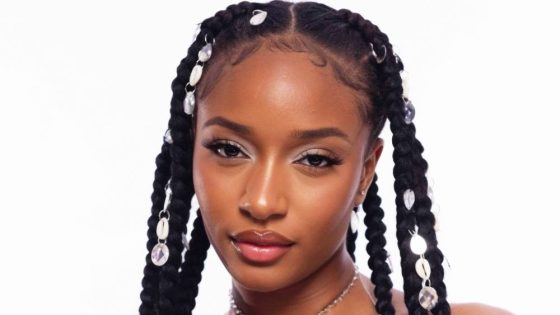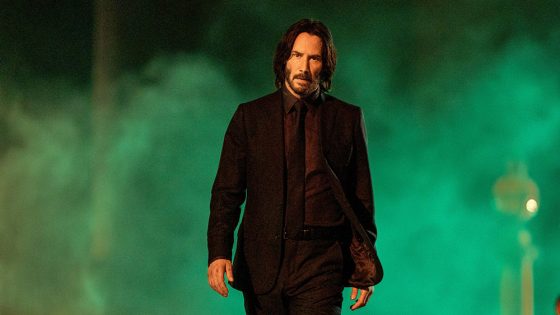Ayra Starr‘s evolution from teen star to a fully-fledged musician has been fast and furious. In the three short years since her debut EP was released, the singer has become a household name within the African music community and is making moves beyond it. Since Variety spoke with Starr last year, she’s gone on to headline her debut world tour, hit a billion streams on Spotify, and scored a Grammy nomination for best African music performance with her smash hit “Rush.” The Beninese-Nigerian singer-songwriter’s sophomore album dropped today (May 31) via the recently announced Mavin-Republic Records partnership (as a part of a larger deal with Universal Music Group) and features labelmate Anitta, Afrobeat star Asake and R&B singer Giveon, among others.
A lot of Starr’s signature swagger and determination — via her popular “sabi girl” catchphrase and the daring title of her debut album “19 & Dangerous” — was the mark of a young artist still defining who she was. “I feel like I was a very confident human being, but I was never a confident musician because I was shy to say my thoughts in a studio session,” she says. “I would make everybody leave before I could even record myself. But with this album, I became a more confident musician and a better vocalist. I would have my vocal coach in the studio with me and they would tell me how to hit certain notes better. It’s also about vulnerability and removing my ego.” The singer was instrumental in crafting the project as she co-wrote every song on the album, with several contributions from singer-songwriter Mason “Maesu” Tanner (“Angels in Tibet” by Amaarae, “No.1” by Tyla & Tems) and top producer London (“Calm Down” by Mavin labelmate Rema with Selena Gomez, “Bloody Samaritan” by Ayra Starr).
As its title signals, “The Year I Turned 21” is a coming of age story. Sonically, the album floats between genres but is rooted in Afrobeats. The opening “Birds Sing of Money” is a midtempo track with snare and brass drums that give it a R&B and light hip-hop vibe; later Starr leads a formidable female trio on “Woman Commando” with Coco Jones and Anitta; the song “21” is easily Starr’s most pop-leaning effort to date, a ballad that reflects on each year of her life.
In the months leading up to her new album, Starr has become a magnet for collaborations, from “Stamina” with Nigerian heavyweights Young Jonn and Tiwa Savage to reconnecting with the latter on “Gara” from the “Water and Garri” soundtrack; she joined joined forces with buzzing French-Malian singer Aya Nakamura for “Hypé” and superstar DJ-producer David Guetta on “Big FU,” also featuring rapper Lil Durk. And just earlier this year, Starr delved into the Latin music with the scorching single “Santa” alongside Rvssian and Rauw Alejandro, propelling to No. 8 on the Hot Latin Songs chart in the US and racking up 160 million Spotify streams in under two months (the song is a bonus track on “The Year I Turned 21”).
Starr reconnected with Variety over Zoom to discuss her new album, navigating fame and what’s next.
You posted a clip on Instagram that revealed the new album was actually supposed to come out last summer, before your tour. What led to the delay?
My people, my team wanted the album out last year — we had the artwork by September and I already had most of the songs. But I felt like something was missing — it didn’t feel complete to me. I felt like I was kind of rushing. On the business side, it [might have been] the right thing to do, and I saw what they were trying to do, but I didn’t feel prepared. I wanted to take my time with it, and everything fell into place. I didn’t have to argue — we had features coming out, and I felt like it would be too much to have an album with all these features out already. Even [“Santa”] was supposed to come out last year.
I had a lot of stuff happen personally and in my work life that made me grow up so much, maybe from having to tour alone and be away from my family for so long. I feel like I grew up so much in the last six months —sonically also, because I’ve always loved making music but I wasn’t sure of my sound yet. I didn’t see my superpowers as superpowers. But now I see that it’s a superpower to be able to go into any, any genre and still be Ayra Starr.
Would you say that patience comes with getting older?
Definitely. I was having a conversation with a friend today and I was like, “I wouldn’t be who I am now if I didn’t have experience,” and the experiences I’ve had have taught me to be patient. Last year, I didn’t have those experiences — it was my first time doing what I did, and of course I was impatient with myself. Of course, I didn’t know certain things. But now I know better.
You seem more vulnerable in the new music, releasing some more details about personal things that you’ve experienced. How did you come to feel comfortable revealing those things to the world?
Things just feel right at the right time. I feel like I want to share this part of my life. When I released my first album and my first EP, I wasn’t ready to show those things. I liked the idea of Ayra Starr, but I wasn’t ready to be her. I didn’t want to be seen. It just comes naturally. Sometimes, like now, I feel open about sharing aspects of my life, and then there are some things nobody knows about that I’ll share later.
What’s one of the things you’ve enjoyed most about being 21?
Let me see… um, meeting Rihanna. (laughs) It’s really crazy: An artist I grew up with, listening to me… It doesn’t even seem like she’s real — she’s Rihanna, it’s like she’s an idea. You never think that you’re going to actually meet her one day and be one of her favorite artists and she’s going to love you.
You were so young when your career started in earnest — 17, 18 years old. What has it been like basically growing up in front of the world?
Yeah, it’s been crazy, very crazy because the public has literally seen me grow since my first EP. I think that’s why my fans are very protective — very supportive, and they don’t joke about me. (laughs) But we literally grew up together — we shared all these experiences together and I have the honor of singing about them on the album.
Sonically, this album is very different for you — more pop elements, more guitar, more R&B vibes. What led to those experiments?
I knew I wanted to give you guys something different. With the last project, before I released the deluxe, I wrote in my notes, “After this album, I’m going to release one of the greatest Afrobeats albums to ever be released!” I want to give myself a challenge. I have a good ear and I know what I want to hear. I’m like, “I want this, I want that,” and I might sound crazy in the beginning and the producers are like, “Nope!” (laughs)
But I’ve given it my absolute best and worked with the best people. I’m very excited about this album, but I’m not allowing myself to get too excited.
Source Agencies



